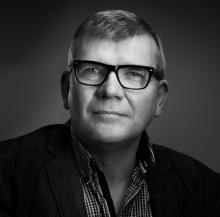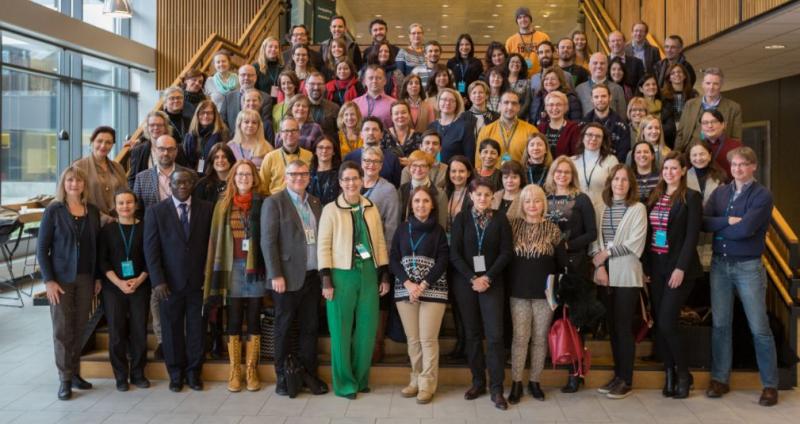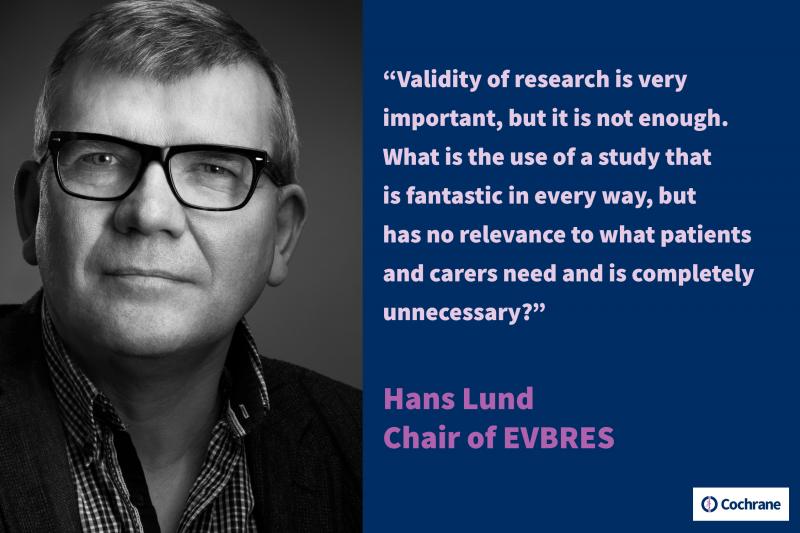

Many members of the Cochrane community have been engaged in the Evidence-Based Research Network (EBRNetwork) and will be participating in EVBRES (Evidence Based RESearch). In this interview, as part of our REWARD series, chair of EVBRES Hans Lund gives an overview of what this new initiative sets out to achieve in promoting evidence-based research and reducing research waste.
Could you tell us about EVBRES and how it started?
EVBRES (EVidence Based RESearch) is a European Cooperation in Science and Technology (COST) Action – an EU-funded network that brings scientists together to collaborate around a topic – that started in October 2018 and will run until October 2022. We launched with a meeting in Bergen, Norway, in February 2019, with 85 people from Europe and beyond coming along and actively participating, which was fantastic.
It is a project under the Evidence-Based Research Network (EBRNetwork), which I established together with a group of people interested in the concept of evidence-based research in 2014 in Bergen, Norway. The EBRNetwork is made up of very enthusiastic people, but we have not always had the energy, resources or time to follow up in addition to doing our usual research work. We had always just been doing the best we could with our spare time – and I think we managed a lot, with a paper, ‘Towards evidence-based research’, published in the BMJ, and several more to come.
The COST Action funding will be a huge help, making it possible for us to come together and work on the issue. However, when the COST Action funding comes to an end, we know that the work of the EBRNetwork will continue.
How did you get interested in evidence-based research?
During my PhD in 1994, I was introduced to three concepts: evidence-based medicine, systematic reviews and Cochrane. I was hooked immediately and attended the Colloquium in Oslo in 1995 and was very inspired. While my personal circumstances meant I couldn’t be very active within Cochrane in the following years, I promoted systematic reviews and evidence-based medicine through writing, courses and lectures, and was very enthusiastic about my profession, physiotherapy, being evidence-based.
Later, I realised that systematic reviews were not only useful for informing evidence-based medical practice. I would talk with colleagues who were researchers and wonder why they didn’t use systematic reviews. I had a feeling that there was an opportunity to use systematic reviews for new studies, to justify them, come up with a design or place the research into context.
I stumbled on a presentation by Iain Chalmers who articulated this much more clearly, with some meta-research results that showed that when people were not using systematic reviews to justify a new study, there was a great risk for doing redundant or unnecessary studies. I found lots of studies and became much clearer about this. Among the papers I found were a number by Karen Robinson, the Director of The Johns Hopkins Evidence-based Practice Center. We met in April 2014, and together established the EBRNetwork that December.

What is EVBRES aiming to achieve?
We have four Working Groups (WGs) looking at different areas:
- WG1 is focused on the key stakeholders that can make doing evidence-based research difficult or easy. This could be ethics committees, funding agencies, patient groups or medical journals. We want to identify the implications of taking an evidence-based approach.
- WG2 is about training and developing a course for health researchers on how to be evidence-based and why it is important
- WG3 is about supporting international efforts towards a more efficient production and update of systematic reviews without compromising quality.
- WG4 is about meta-research – research on research. We need to standardise meta-research to follow developments. Now we can see only very few are using systematic reviews to justify research and referring to earlier similar studies, but how will we, in the future, know if we have accomplished what we aim for?
What amazed me the most during our meeting in Bergen is that not only 85 people attended and showed interest, but that they worked so hard to figure out how to fulfil the intentions laid out in the application for EVBRES. In 2 or 3 days we made so much progress because people engaged so strongly. We may even be able to achieve some of our goals sooner than expected.
We are currently applying for funding. The COST Action supports our meetings, but we have no funding for the work we are doing between those meetings – right now, people are doing it in their spare time because they think it is so important.
How do you think EVBRES can help to tackle research waste?
Research waste goes beyond the different scientific disciplines and medical specialities. Many of us are dealing with our own challenges in our work – we don’t often have the time to consider how we are doing the research; we have to publish. It is ‘easy’ to say that one should use systematic reviews, but how to do that is the real challenge. EVBRES is bringing people together to consider this and to listen to the experience of researchers, funders, ethics committees, journal editors and other stakeholders and to consider the practicalities. It is unique to bring together so many people to evaluate research practice.
We are fully aware that we are talking about something that has been a part of the scientific approach since the 15th or 16th century. It is just that now, for the first time in history, we have the technology to help address it. And we would very much like to help!

How does this tie in with Cochrane’s work?
I think the concept of research waste, as written about by Iain Chalmers and Paul Glasziou in 2009 and explored in the 2014 Lancet series, has been an eye opener for many people. There is a very close relationship between the thinking behind Cochrane and the concept of research waste, and particularly evidence-based research. Whenever you do a systematic review, you show the problems with original studies – you pull the curtains back and show the good and bad parts. Many of the people engaged in our network are also from Cochrane.
Why do you think this work is so essential right now?
Validity of research is very important, but it is not enough. What is the use of a study that is fantastic in every way, but has no relevance to what patients and carers need and is completely unnecessary? Redundancy is an ethical issue.
The research community could end up in a situation where the public, funders and politicians tell us that we have been wasting their money, health and time for decades, so will no longer support us. We need be transparent and identify and repair our errors – we can use science to improve science.
The Cochrane-REWARD prize – 2019 nominations open
The annual Cochrane-REWARD prize recognizes good local or pilot initiatives that have the most potential to reduce research waste if scaled up globally.
Nominations for this year’s prize are open until 5 June 2019
Find out more about the prize and how to submit a nomination

